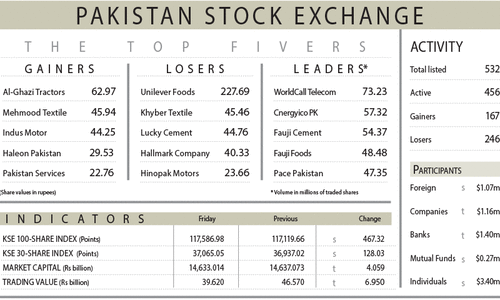NEW DELHI, June 20: Indian inflation raced to its highest level in 13 years, accelerating to over 11 percent after a fuel price hike, according to data Friday that piled pressure on the government as general elections loom.
Annual inflation in the world’s second fastest-growing major economy jumped to 11.05 per cent for the week ended June 7 from 8.75 per cent a week earlier, stunning economists who expected it to be around 9.8 per cent, and pushing shares to a 2008 low on fears of more interest rate hikes.
The “double-digit shocker,” as one Indian TV news channel dubbed it, was driven by a sharp increase in state-set fuel and cooking gas prices as well as rises in such basic foods as cooking oil.
Nobody had expected an 11 percent out turn, said HSBC economist Robert Prior-Wandesforde. To make matters worse, we very much doubt inflation has peaked. With the general elections fast approaching... the government’s worst inflationary nightmares are coming true, he said.
The Congress party-led government desperately wants to tame prices, fearing a voter backlash in national elections due by May 2009. The Congress has already suffered a string of state poll defeats with inflation, which has hit India’s teeming poor the hardest, blamed as a key culprit.
We’ll have to look at stronger measures on the demand and monetary side and try to improve the supply side, Finance Minister Palaniappan Chidambaram said.
The latest inflation data came as governments around the world battle rising prices. Malaysia Premier Abdullah Ahmad Badawi this week warned of a “real disaster” unless bold steps are taken to tackle the inflation crisis, forecasting a global recession as prices of food and fuel soar.
Neighbouring China is groaning under the worst inflation in a dozen years at 7.7 per cent and a hefty fuel price hike Friday could push it higher.
India’s new inflation figures incorporated for the first time its own rise in state-set fuel prices announced earlier in June and aimed at stemming huge fuel company losses caused by surging global crude prices.
The inflation level is the highest since May 6, 1995, when it stood at 11.11 per cent and posed a threat to the growth prospects of the country, said the Confederation of Indian Industry.
We’re getting into very dangerous territory, said Abheek Barua, chief economist at India’s HDFC Bank.
Economist Prior-Wandesforde forecast inflation was likely remain in double-digits for at least nine months. Some economists saw inflation rising to at least 12 or 13 per cent.
Several analysts forecast another half point rise in India’s leading short-term lending rate, the repo, along with other credit-tightening measures.
I think more monetary measures are coming our way in the next few days, Barua said.The data came just over a week after the bank hiked the repo rate by a quarter point to 8.00 per cent, a six-year high, the latest in a series of aggressive anti-inflation steps.
The Mumbai 30-share Sensex index plunged 517.1 points or 3.42 per cent to an intraday low of 14,570.89, its weakest level for the year, as investors feared more rate hikes could hit company profits and slow the economy.
The economy grew nine percent in the past fiscal year but some economists expect expansion to slow to seven per cent or lower this year due to monetary tightening and the global slowdown.
Analysts said the government had little left in its fiscal arsenal to fight inflation -- it has already banned exports of staple foods like rice to boost supplies and check inflation and the Confederation of Indian Industry appealed for out of the box solutions to ensure growth is not seriously damaged.
There is probably a case building up for the governments of the world to come together to deal with inflation, the industry body said.
It is not just India, but most large economies, which have a lot to lose if the global price pressures continue, it said.—AFP













































Dear visitor, the comments section is undergoing an overhaul and will return soon.